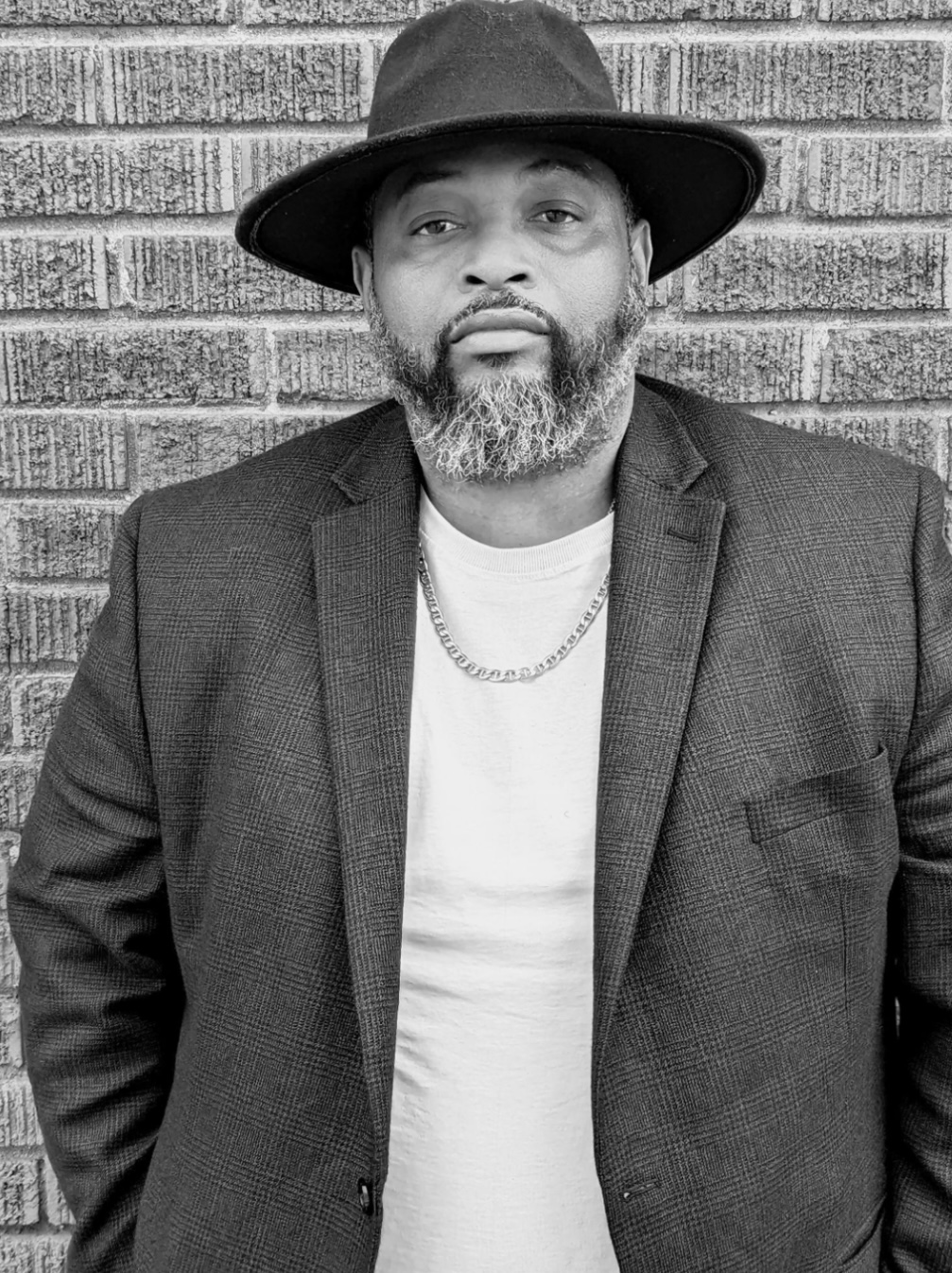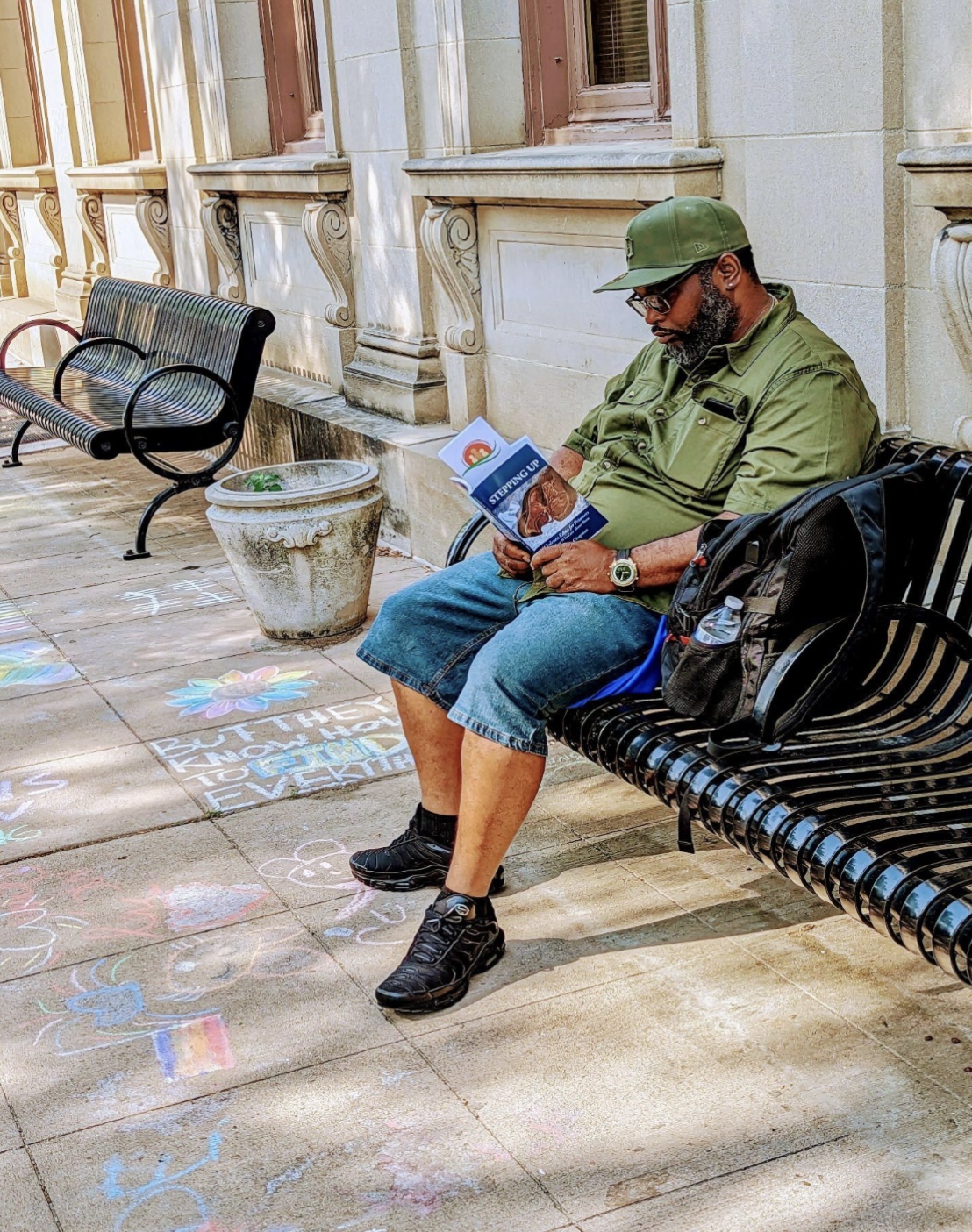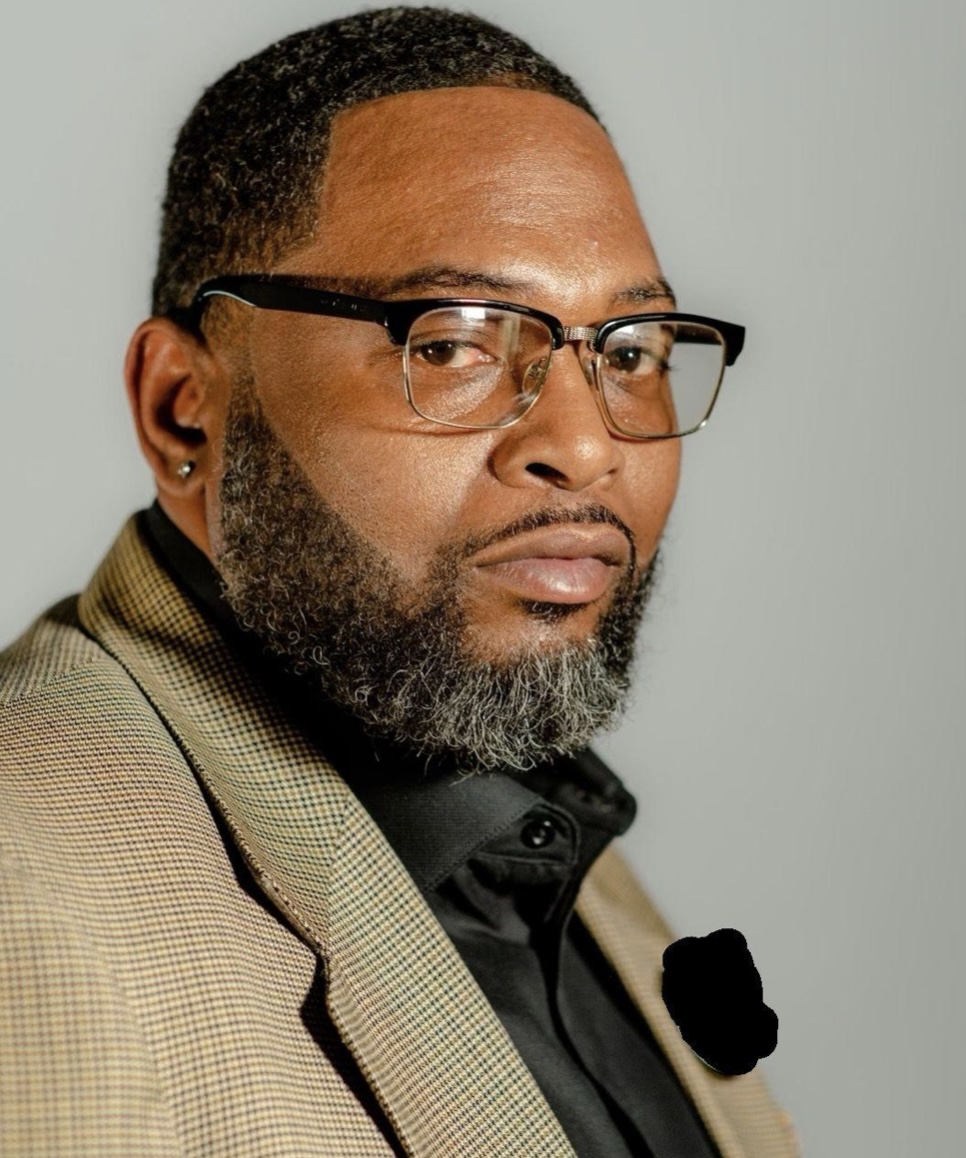[ad_1]
Growing up in Detroit amidst a turbulent upbringing, Laquan Hill discovered unexpected sources of solace and guidance. Through involvement with the Police Athletic League (PAL) and high school football, seemingly ordinary outlets became catalysts for profound transformation in his life. Laquan’s story is a testament to resilience, reinvention, and the impactful role of community support. Join us as we delve into his remarkable journey, exploring the pivotal moments that molded his character and set him on a path of purpose and service.

Can you take us back to your early years in Detroit and shed light on how the Police Athletic League (PAL) and high school football became pivotal in shaping your character and providing a lifeline during tumultuous times?
Laquan: During the time before I got introduced to football, I was a very temperamental adolescent with no means of having a healthy outlet to deal with issues of trauma from childhood. My grandmother was seeking ways for me to get some help, so she reached out to my cousin’s father for assistance, as my father was absent. He recommended that I get into team sports, mainly football.
Playing football became a positive outlet for me, and I found success in it. There was something about the competitive nature of the sport that appealed to me, as it allowed me to channel my energy in a constructive way and escape from the challenges I faced in my neighborhood. I deeply appreciate the dedication of my coaches and the organization for not only teaching me the fundamentals of football but also important life skills like teamwork, accountability, and responsibility. Their emphasis on education was crucial; if it weren’t for their insistence on academic progress, my grades would have suffered. Their requirement for weekly progress reports motivated me to excel in school, knowing that maintaining my grades was necessary to continue playing football. My time with PAL (Police Athletic League) was incredibly rewarding, earning me numerous trophies, including MVP, and the opportunity to play in the PAL All-Star game. This passion for football carried over into high school, where I was fortunate to have coaches who shared the same values and mindset as those in PAL, albeit on a larger scale. I am immensely grateful to my cousin’s dad for suggesting football to my grandmother, as I firmly believe that football played a pivotal role in saving my life.
Thank you for your service! Joining the Marines was another significant chapter in your life. How did this experience contribute to your personal growth, and what positive impacts did it have on your journey?
Laquan: Past trauma can become an unwelcome companion, silently influencing decisions even in the fervor of enlisting in the Marines, potentially shaping my journey in unforeseen circumstances.
So I joined the Marines Corps out of desperation to get out of my current environment during that time of my life, not to mention that I also had a baby on the way. It seemed like the perfect answer to a lot of my problems.
The positive part of the Marines Corps is that it gave me structure and discipline. Learning the skills and techniques of war however helped me to feel invincible. On the other hand, the training made me feel unstoppable and emboldened me with a more violent, aggressive behavior, and a false sense of pride.
Now at this part of my journey, I can see the real benefits of the Marines Corps, which gave me more resilience, courage, tenacity, and honor to be of service. I just wish that I had seen this back then. I now have a better understanding of the fact that unresolved traumas, no matter where you go they go with you.
Despite external influences, you faced inner turmoil that led to incarceration. Can you share the turning point when you realized change was necessary, and what therapeutic modalities played a crucial role in your self-discovery and healing process while in the custody of the Michigan Department of Corrections?
Laquan: The turning point for me was attending my first House Of Healing class. When I got to the class, the question was asked, “Who Am I Really?” I answered the question in an immature, superficial, and shallow manner. The facilitator challenged me on my answers, and asked me if he would strip all of those answers away, “Who Are You Really?” I was stunned to realize that I could not answer the question. This resulted in me coming back again and again, and engaging in more conversations. The Facilitator was so skilled, he helped me find answers that I had no clue as to how I was going to find them. He simply asked me to ask myself, “Who Are You Not?” Since I was having difficulty answering “Who Am I Really?”
This was a revelation to me, as I realized that most of my life I was mocking behaviors of people around me. I didn’t have a true sense of who I really was. Attending the classes and doing the exercises allowed me to dig deep and get to the root cause of my identity crisis, issues, and errors in my thinking.
House of Healing helped me to answer questions on what I longed to have for so long.
Who Am I REALLY?

The program “Houses of Healing” played a vital role in your internal healing. Can you delve into how this program helped you transform and lay the foundation for your journey towards self-discovery and rehabilitation?
Laquan: House Of Healing gave me real insight on the “How’s”, “What’s”, “Why’s”, and “When”.
It allowed me to ask important questions and gain an understanding of my trauma response behaviors in the past and gave me tools to deal with them. I found my purpose and passion to be of service through doing this necessary work on myself. HOH has been instrumental in my life, and it became my responsibility to pay it forward to every person while I was still inside. That is when I was a student, who became a Facilitator.
During your time in “Houses of Healing,” you formed a transformative friendship with Adam Grant. How did this friendship impact your life, and how has it influenced your role as Deputy Director at A Brighter Way?
Laquan: The Facilitator that I mentioned during the turning point of my life was Adam Grant. He has become my Confidant, Best Friend, Brother, and Mentor. If it wasn’t for Adam seeing something in me that I didn’t see in myself, my purpose would have not been realized.
He is a true friend that helped me redefine what a “true friend” really means. I count on him daily. He has been a tremendous blessing to me.
It is so beneficial to have someone to bounce ideas, thoughts and concerns off of. He has my best interest at heart, he is not a “yes man”, and he gives me the hard truth with love at the center. He has been paramount in my growth, confidence, and success. It is no coincidence that we have teamed up at A Brighter Way. Under his tutelage, I have refined my skills and techniques to effectively help others, which played a role in my promotion as Deputy Director of A Brighter Way.
Now as a father, son, and community healer, how do you draw on your past experiences to shape your purpose and empower others to overcome adversity?
Laquan: My Superpower is my ability to be totally transparent. I am not afraid to tell my truth, as it allows others to see that they are not alone. I know about the traumas, the challenges, the barriers and the stigmas that accompany them. I also know that one can rise above their past mistakes and still be triumphant. It is a process, but it is possible.
I love and appreciate my family, especially My Mom, my sister,and my children. My entire family sees the changes that I have made and they are proud of me. I want to continue to be the best example that I can be and inspire my family that maybe still dealing with challenges of their own. Community Building is my life’s mission. It is my hope that my story becomes someone’s reminder to never give up.

Can you share specific instances where your personal journey has intersected with the work you do at A Brighter Way, and how this alignment has influenced your approach to community healing and support?
Laquan: I have had the honor to be a Navigator for many men who were formerly incarcerated. When they walked through the doors of A Brighter Way, many of them were discouraged, rejected, broken, and lost. I have the lived experience to assist them. The joy of many of these men now having good jobs, their own place to live, and to see them thrive, is the most fulfilling part of the work that I do.
I plan to pay it forward, one day at a time, one person at a time because someone helped me out. I will be forever indebted. Which is a good debt to have.
Connect with Laquan Hill by emailing mentoring@abrighterway.org
[ad_2]








